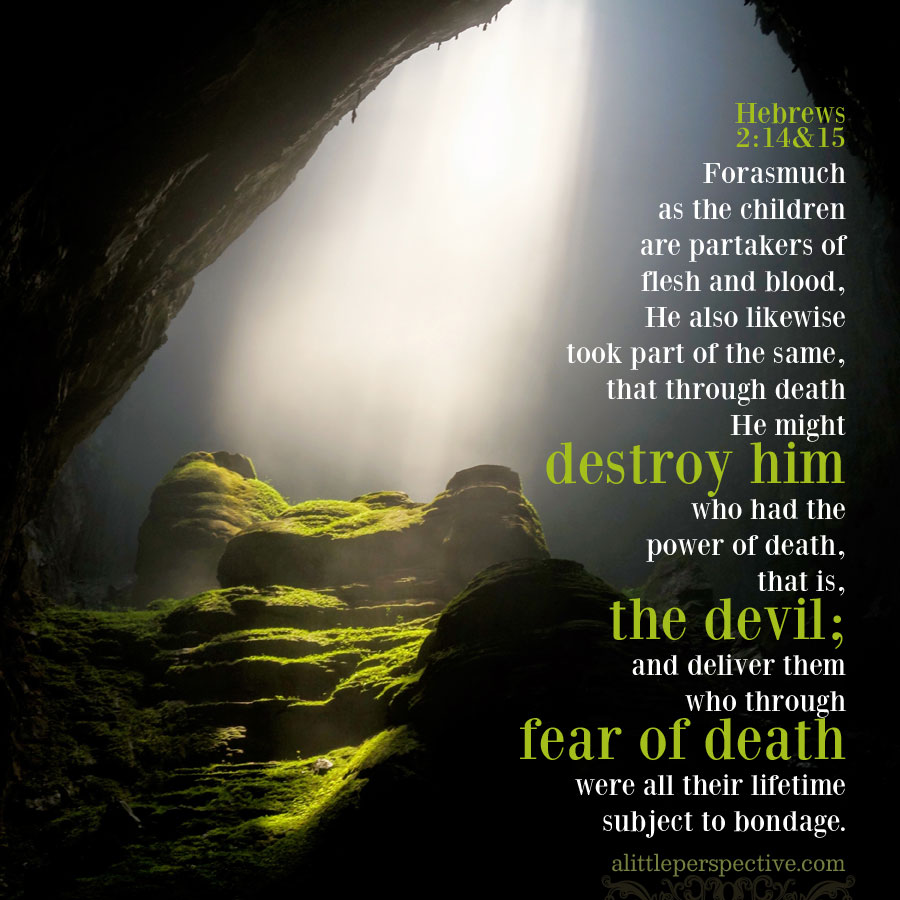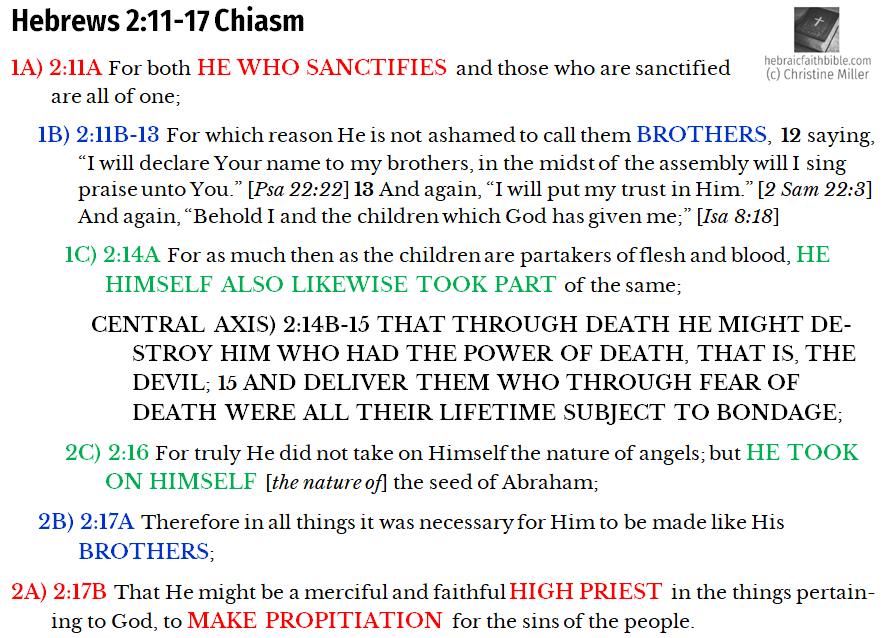Read Hebrews 2 here (text coming …) or at Bible Gateway.
Chapter 2 has this Chiastic Structure in it:
We have just read through the first four books of the Law, Genesis through Numbers, and in it we learned that Aaron was to attend to his priesthood so that no more wrath would come upon Israel for their sins. The priests offered the sacrifices for sin, to atone for someone’s sin so that their sins would be forgiven them (Lev 5:13). The high priest sanctified the children of Israel when they had sinned, bringing them back into a right relationship with God.
To sanctify is Strong’s G37, ἁγιάζω hagiazō, a verb meaning, “to separate from profane things and consecrate to God.” Those who translated the Hebrew Scriptures into Greek, used hagiazō for the Hebrew Root Word קדש qadash, Strong’s H6942; a primitive verb meaning, “to be holy.” According to the Ancient Hebrew Lexicon, the ק quph was transposed from an original chet, making the 3-letter root chet + dalet + shin.
chet ח = the wall, thus outside, divide, half
dalet ד = the door, thus enter, move, hang
shin ש = two front teeth, thus sharp, press, eat, two, again
The parable is of the wall which makes a separation (chet) between two parties. When one comes through the wall via its door (dalet), the two parties (shin) can be joined together.
Here in Hebrews, we are seeing that Aaron the high priest was a Prophetic Type and foreshadow of Messiah Yeshua, the eternal High Priest, who makes a door in the wall of our sins which separates us from God, so that we can be reunited with Him again.
To make propitiation is Strong’s G2433, ἱλάσκομαι hilaskomai, a verb meaning, “to conciliate.” This word was used to translate the Hebrew נהם nacham, Strong’s H5162; a primitive verb meaning, “to give comfort, to have sorrow.” We just saw this word in Numbers 23! The 3-letter root is nun + chet + mem.
nun נ, ן = the seed, thus continue, heir, son
chet ח = the wall, thus outside, divide, half
mem מ, ם = the water, thus chaos, mighty, blood
To continue (nun) outside (chet), that is, to rest at pasture, as the shepherd took his flocks outside their enclosure for the season, to find good pasture. The addition of the mem brings to mind:
YHVH is my shepherd; I shall not want. He makes me to lie down in green pastures; He leads me beside the still waters. Psa 23:1-2
Thus the parable: To rest in green pastures (nun + chet) and still waters (mem).
Because Yeshua has reconciled us to God (made propitiation) as our faithful High Priest, we are now the sheep of His pasture, lying down in green meadows beside still waters, with nothing lacking that we could need.


















Leave a Reply